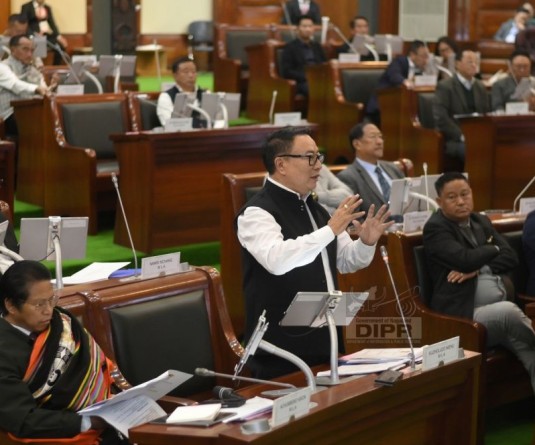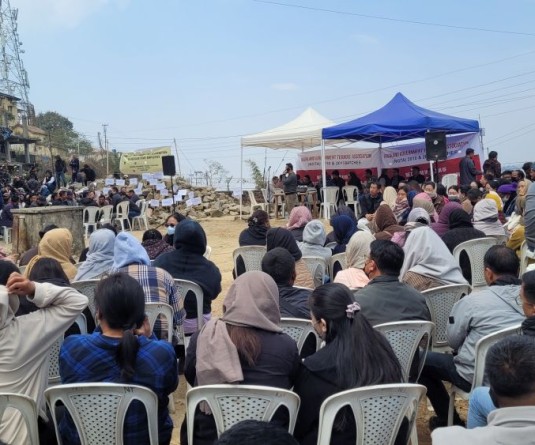‘There is no future without forgiveness’
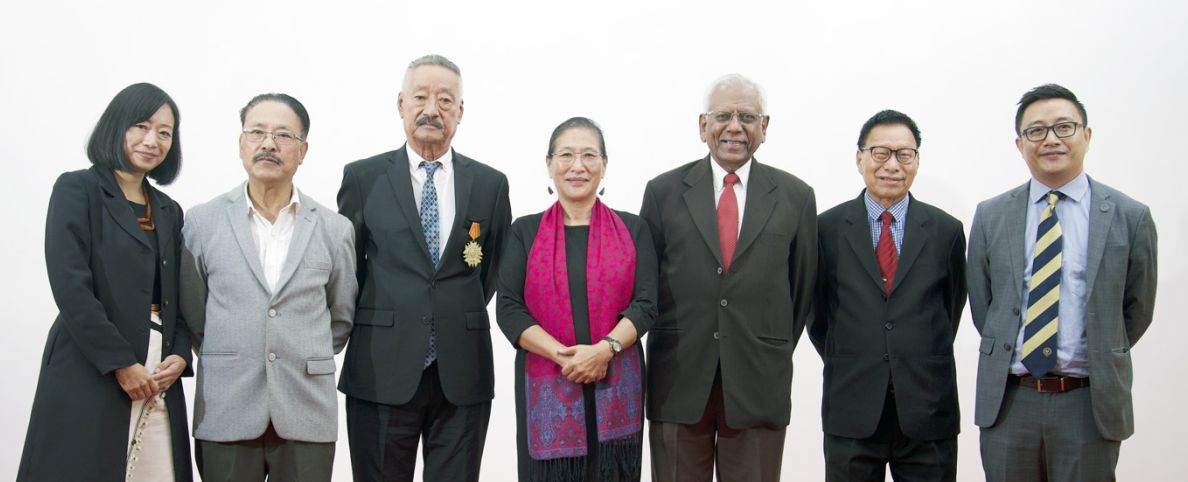
Rev. Dr. Wati Aier, recipient of the A Kevichusa Citizenship Award 2019 (third from left) with wife and members of the Kevichusa Foundation. LT Jeyachandran (third from right) delivered the Chalie Kevichusa Memorial Lecture 2019 at a program held at DBIDL Hall, Don Bosco Campus, Dimapur on November 30. (Photo Courtesy: Wathy Jamir)
Rev Dr Wati Aier receives A Kevichusa Citizenship Award 2019
Morung Express News
Dimapur | November 30
Rev. Dr. Wati Aier received the A. Kevichusa Citizenship Award (KCA) 2019 presented by the Kevichusa Foundation at a programme held at DBIDL Hall, Don Bosco Campus, here today.
The annual KCA is presented by the Foundation to celebrate and promote the ideal citizenship. The Award recognizes an indigenous individual or group of Nagaland that has consistently championed, demonstrated and embodied the ideal of citizenship and unwaveringly sought the common good of the people of Nagaland or sections and constituencies thereof.
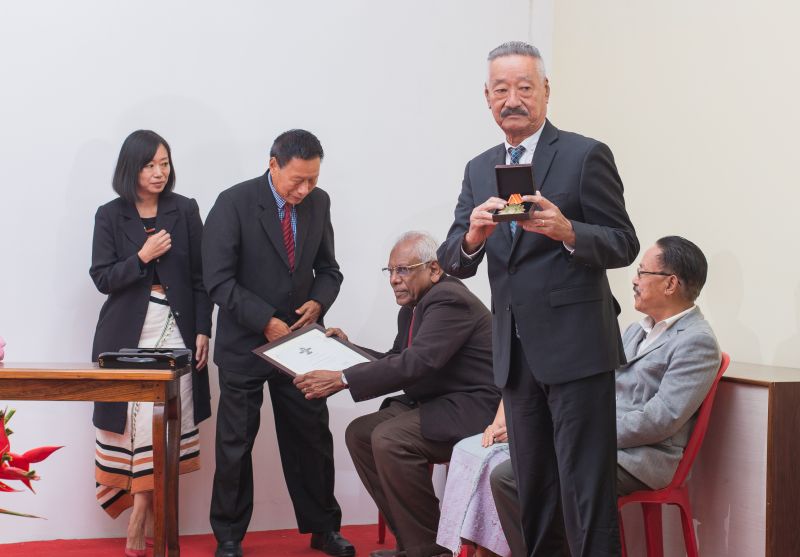
Accepting the Award, Dr Wati described late A. Kevichusa as “a person of renaissance,” a legend in the story of the Naga people, a person who was much ahead of his time. “It is an honor and is absolutely humbling,” said Dr. Wati receiving the award.
In his acceptance speech, Dr Wati held that there is no future without forgiveness.
“FNR is a collective ministry of young and older Nagas,” said Dr. Wati who believed that “as a mark of our faith in Christ, the Naga identity needs transformation through forgiveness, healing and peace.”
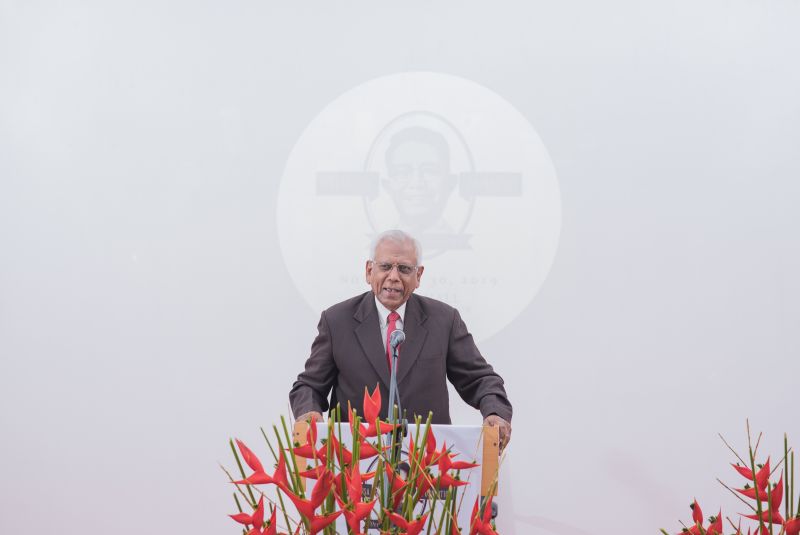
“We must immediately shun the fallacy that seeking forgiveness is a sign of weakness. Rather it is the other way around. Seeking forgiveness should be the greatest power of the Nagas at this moment. By not forgiving, are we not destroying the thing we all wanted?” He prodded.
While acknowledging that each Naga group constitutes “boundaries and perceptions of fear, pride and hatred,” Dr. Wati held that “if we tally too long in the otherness without finding a common ground, these boundaries will suffocate us.”
“Otherness must come together in embracing one another,” he opined while reiterating there is power in forgiveness, which every Naga group must strive to realize.
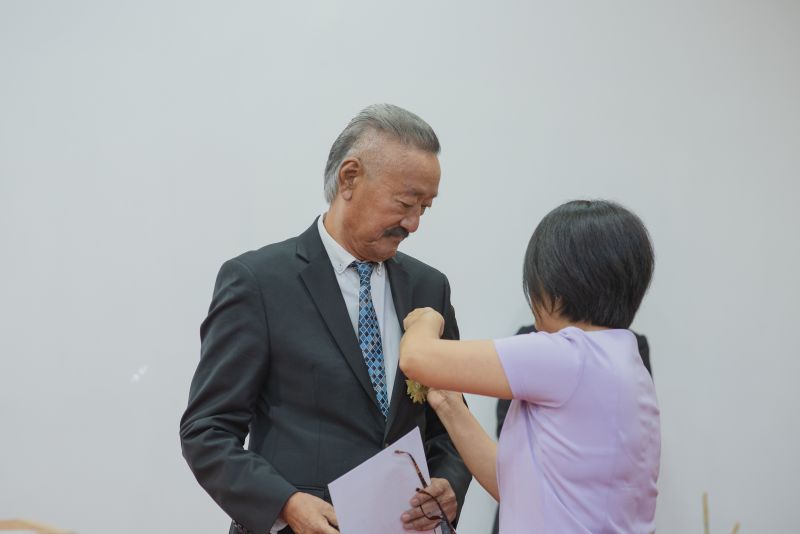
Dr Wati also recalled the lessons he learnt in the FNR (Forum for Naga Reconciliation) journey stating that “nothing is as practical as a good theory.” He remained convinced that “our society needs theological people beyond academic degrees alone; to be movers and shakers and transformers of our society and culture – and to exorcize the theological demons of romanticism and accommodative typologies.”
Professing that he has been influenced a lot by his own students, Dr. Wati said that young people are “much much well informed. At the heart of education is empowerment. In context, this is all about promoting and learning from the young minds, and sincerely being proud of them without being insecure,” he stated.
“It is the empowered young minds – women and men and the wisdom of my peers who taught me the lessons of being critically analytical. Today they have changed me,” said Dr Wati.
Dr Wati also acknowledged his wife Alongla, who has been his companion, a counselor, a prayer partner, a teacher and a mother. “Besides God, I owe it to her.”
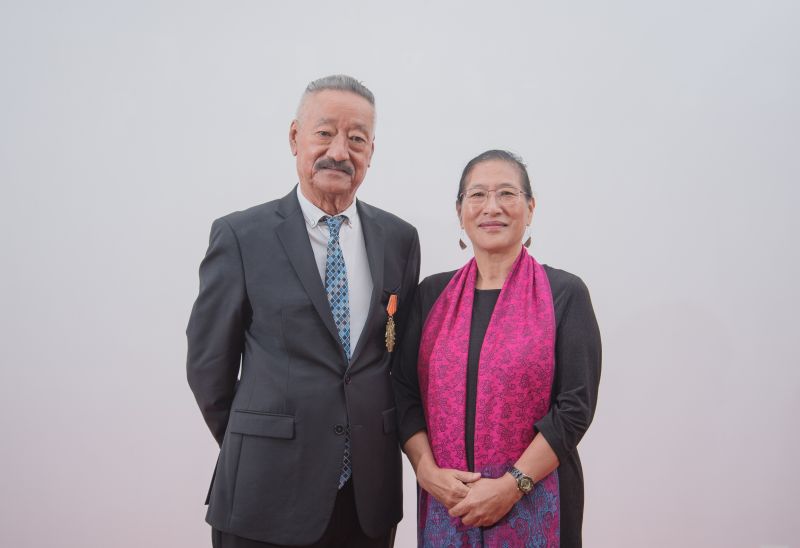
‘Unity possible only when there is otherness’
Along with the KCA, the Foundation also held the annual ‘Chalie Kevichusa Memorial Lecture 2019’ with LT Jeyachandran, Former Executive Director, Ravi Zacharias International Ministries (Asia-Pacific) Ltd delivering the lecture as the keynoter speaker.
Speaking on unity in diversity, Jeyachandran maintained that “unity is not uniformity, it is more than uniformity” while asserting that for unity to be possible, love is the unifying quality. He put across that unity is possible only when there is otherness and that “God’s unity is possible only in diversity.”
Calling upon the gathering to respect “the otherness,” he believed that “it is the otherness which makes life meaningful.” When love and unity comes together, a new creation will be born, “love and unity is the new creation,” Jeyachandran held.
And in the new creation, “our identities of tribe, language will be taken over. You can bring your language with you, culture with you,” he said.
The ceremony also included special music, personal sharing and responsive reading.



